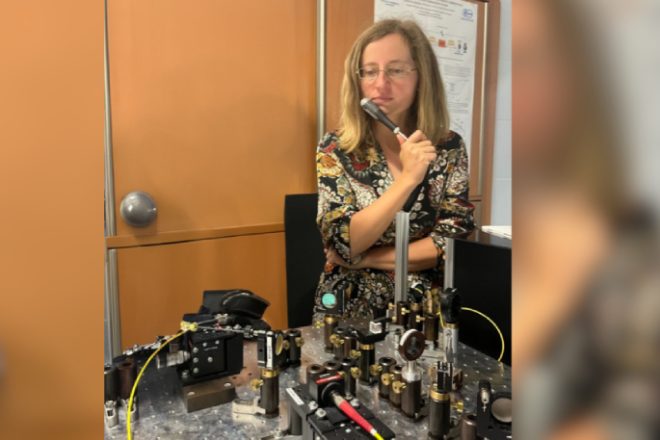Artificial intelligence (AI) could revolutionize the way we monitor eye health by producing clearer images and cutting down on expensive exams. Dr. Sylwia Kolenderska, a Senior Research Investigator in Physics at the University of Canterbury, plans to use AI to make optical coherence tomography (OCT) more accessible.
OCT is a light-based imaging technique used in eye health assessments. It creates three-dimensional internal images of the eyes, similar to an ultrasound but with light. However, high-resolution OCT machines are costly, making them out of reach for many researchers and clinicians.
Dr. Kolenderska noticed that data processing was a problem with these expensive machines. While they produce good quality images, these images are not immediately available. They need to be calculated from raw signals, which slows down the process.
Dr. Kolenderska saw a chance to improve cheaper machines that produce lower quality images. She proposed using a neural network – an algorithm that learns patterns like a human brain by analyzing data – to replace the standard algorithms for OCT image calculation. This would create an instant and sharper image.
“We can take a cheaper machine with a worse resolution and apply our own technology, much like a software update, to make low resolution data into a high-resolution image comparable to the very expensive OCT machines,” Dr. Kolenderska explained. “In the future, it could be made into a hardware and attached to an OCT machine like a USB stick.”
AI is excellent for finding relationships between different sets of data, making it a more robust data interpreter and enhancing the process of image calculation. Dr. Kolenderska believes that the image quality could be up to six times better than current images.
Dr. Kolenderska and her team have been accepted to attend the prestigious Computer Vision and Pattern Recognition 2024. They are one of only ten New Zealand teams to be in the event’s 41-year history. To further her work on OCT imaging, Dr. Kolenderska received a $999,999 Smart Ideas grant from the 2023 Ministry of Business, Innovation and Employment Endeavour Fund.



















































-360x245.jpg)










